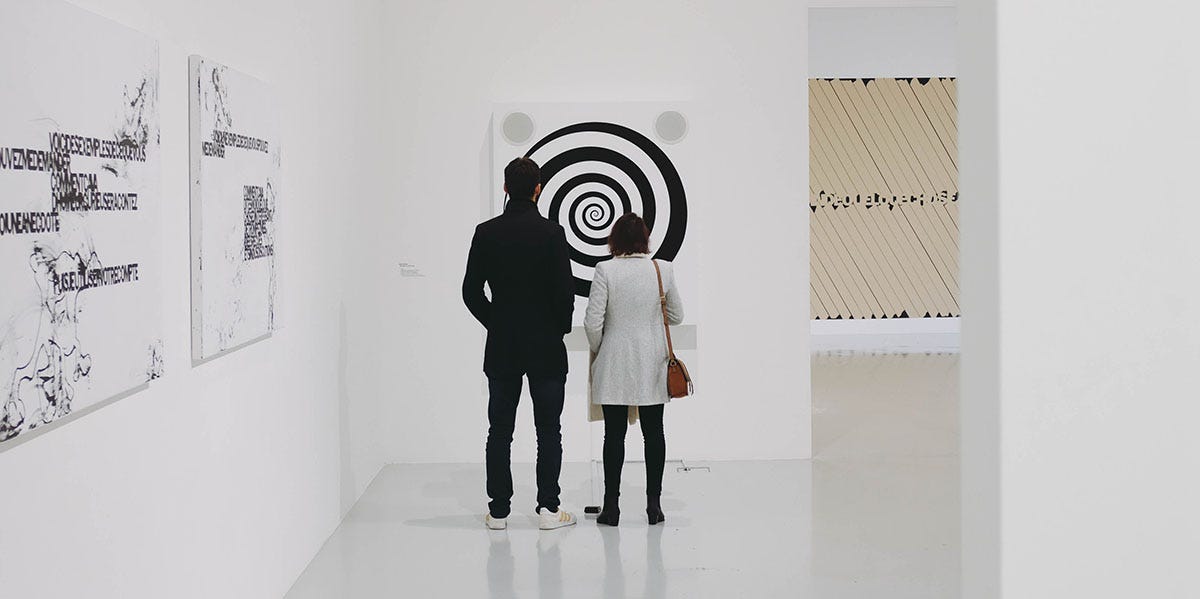Business culture
Now that you know all the important German business vocab, it’s time to take a closer look at German business culture including business etiquette and attire.
German business culture, etiquette and attire
German business culture isn’t all that different from American business culture - but if you look closely, you’ll spot some interesting facts:

As Europeans we tend to value culture, leisure and art over “the grind”
While it sometimes seems like Americans live to work, Germans definitely rather work to live, meaning most people don’t see their job as their main focus in life. Of course there are also companies with highly demanding work environments and employees who work beyond the 40 hours they’re supposed to - but that’s the exception.
Education is highly valued
Companies invest heavily in employee training and development, and advanced degrees and certifications are often required for top positions. As universities are free in Germany, you’re just expected to have a degree if you’re looking to work in certain fields.
Mental health is taken very seriously in the workplace
In Germany, employees are entitled to paid sick leave if they’re unable to work due to mental health issues as these are treated just like physical health issues.
One month a year is usually vacation time
Legally, German employers are obligated to allow at least 20 paid vacation days per year but only about 4% actually stop there. About 70% of German employees are offered at least 26 to 30 paid vacation days.
German maternity leave (Mutterschutz) lasts for 14 weeks
Starting six weeks before the due date and ending eight weeks after the birth of the baby, the mother receives her full pay from the employer and is not allowed to work.
After that, she (or the other parent) can choose to take an additional parental leave, which can last up to three years! For the first 14 months of parental leave, they receive about 65% of their pay from the government.
After that, they don’t get any money but the employer is obligated to hold a position for them, so they can either return to their former job or an equivalent position.
Business attire isn’t taken too seriously in Germany.
Yes, employers appreciate it if you wear a clean shirt for your job interview, preferably without holes, but that’s about it. Germans are generally known to value comfort and practicality over fashionability.
My best tip if you’re actually working in Germany is to dress appropriately for the weather. That means: Bring a scarf in winter and a hand fan in summer. Don’t expect to find an AC in your office!
5 tips on adapting to a new work culture
We know that’s a lot to remember, so here are 5 general tips that will save you in any new work environment.
1. Observe
Spend some time observing and listening to your colleagues to learn about the company's culture and work practices. This can help you understand what is expected of you and how you fit in the bigger picture.
2. Ask questions
Asking lots of questions will show that you’re interested in learning and understanding the company.
3. Invest in relationships
Take the initiative to make friends among your colleagues. This will help you feel comfortable and included. Plus, the more time you spend with your colleagues, the easier it will be to understand their ways of thinking.
If you’re working in a culturally diverse environment and you feel like your company would benefit from professional training, it might be worth looking into corporate training services. These are designed to improve intercultural communication between global teams and focus on making the best of cultural differences.
5. Keep an open mind
Be flexible and respectful towards cultural differences. You may feel like the ways you’re used to are better but there usually is a reason people work the way they do. Maybe your way is faster but the way your new colleagues work is more thorough - or vice versa? Keep in mind that different workflows are often built on different values and one isn’t necessarily better than the other!

Just do the impossible
Speaking of business, it’s really insightful to take a look at two of the most famous companies in the world: Adidas and Nike. While they’re doing very similar things, Adidas is German and Nike is American and this shows in their image, their values and their slogans.
Adidas is the older one, valuing tradition, performance and sustainability. Their motto is “Impossible is nothing”, a romantic, slightly stilted call to go above and beyond. Their ways of operating usually come with a lot of strategic planning and coordination with the entire team.
Nike, on the other hand, stands for innovation, inspiration and creativity. Their famous motto is “Just do it” - a work attitude that couldn’t possibly be more American. It’s all about jumping right in and getting the job done, sometimes in ways that have never been done before.
If you’re looking for the best way to combine two different (work) cultures, keep what you value about your own culture but embrace the best parts of the new one. For example, if you combine the slogans of Adidas and Nike, you end up with some pretty good advice that’s more than just the sum of its parts: Just do the impossible!
Of course, the most important part of understanding a foreign culture is understanding the language. So keep learning German on our entertaining and educational German Language Blog.







